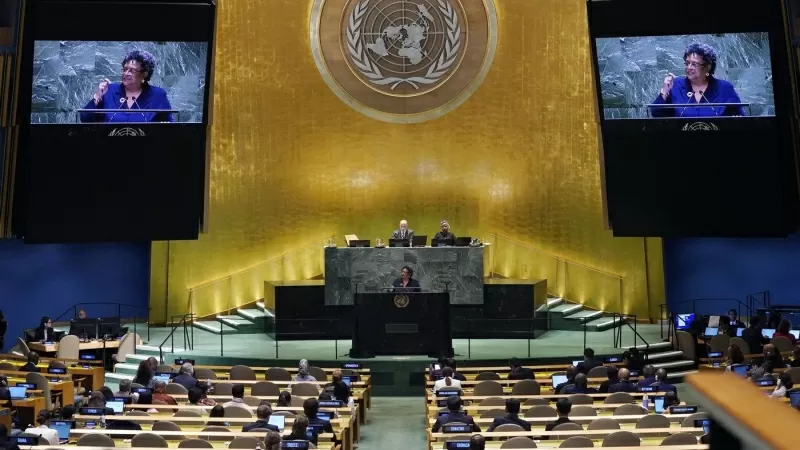World leaders from around the globe recently gathered at the United Nations for the 74th General Assembly, coming together to address pressing global issues and build connections for a better future. However, as the meetings came to a close and the leaders returned to their respective countries, the prospect of a broader Middle East war intensifying loomed over their heads, once again highlighting the deep divisions that exist on a global scale.
As the world watched, tensions between the United States and Iran reached new heights, with both sides exchanging threats and accusations. The ongoing conflict in Syria, the deteriorating situation in Yemen, and the never-ending Israeli-Palestinian conflict have all added to the growing concern that the region is on the brink of a large-scale war.
The leaders at the UN, including US President Donald Trump, Iranian President Hassan Rouhani, and Israeli Prime Minister Benjamin Netanyahu, all had their own perspectives and agendas to push. However, what was lacking was a unified and collective effort to find a solution to these issues and prevent further escalation.
The UN, often referred to as the world’s largest diplomatic platform, has a crucial role to play in ending conflicts and promoting peace. But the recent events have raised questions about the effectiveness of the organization in mediating and resolving conflicts. The divisions among the world leaders were evident as each country prioritized their own interests over finding a collective solution.
While some leaders highlighted the need for diplomacy and dialogue, others resorted to aggressive rhetoric and threats, further fueling the tensions in the region. This lack of unity and cooperation among the world leaders is a cause for concern, as it not only hinders the resolution of conflicts but also creates a sense of uncertainty and unease around the world.
The prospect of a broader Middle East war intensifying has serious implications for the entire world. The region is home to some of the world’s largest oil reserves, making it a crucial player in the global economy. Any escalation in the conflict could lead to a spike in global oil prices and have a ripple effect on the economy.
Moreover, a war in the Middle East could also have devastating humanitarian consequences, with millions of innocent lives at risk. The ongoing conflicts in the region have already resulted in a humanitarian crisis, with millions of people displaced and in need of aid. The prospect of a broader war would only worsen the situation and add to the suffering of the people.
It is imperative for the world leaders to set aside their differences and work towards finding a peaceful resolution to the conflicts in the Middle East. The UN must play a significant role in facilitating dialogue and promoting multilateral cooperation. It is time for world leaders to prioritize the greater good of humanity over their own political agendas.
In the face of these challenges, it is also essential to remember that there have been instances where conflicts have been resolved through diplomacy and mutual understanding. The successful diplomatic efforts between the United States and North Korea, which led to the historic meeting between President Trump and North Korean leader Kim Jong-un, serve as an example that conflicts can be resolved through dialogue and negotiation.
At the same time, it is also crucial for the world leaders to address the root causes of these conflicts and work towards finding long-term solutions. The ongoing tensions in the Middle East have their roots in decades of political, economic, and social disparities. It is only by addressing and resolving these issues that we can hope for a more peaceful and stable region.
As the world leaders head back to their respective countries, the prospect of a broader Middle East war intensifying remains a pressing issue. But it is also an opportunity for them to come together, put aside their differences, and work towards finding a lasting solution. The UN, with its core values of peace, justice, and human rights, must lead the way in promoting dialogue and cooperation among nations. Only then can we hope for a future where conflicts are resolved peacefully, and global divisions are replaced with unity and understanding.

